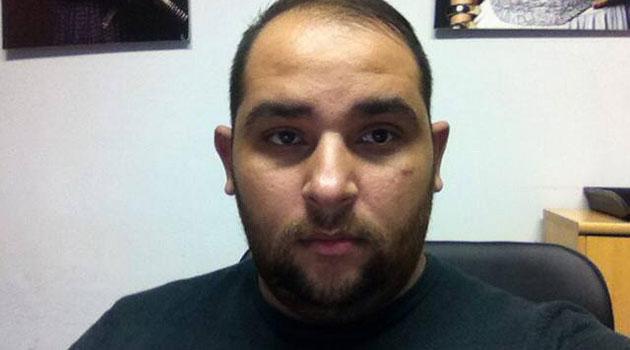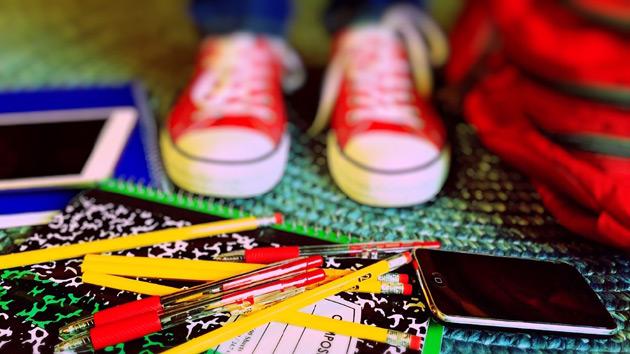Michal Miko: Amendment to education decree violates the Romani Integration Strategy, Czech state obliged to implement inclusion

Romani children are traditionally considered to be the “stupid ones” in the Czech education system, the ones with no interest in their professional futures, the ineducable ones – simply put, a disruptive element of foreign origin. That is the approach taken toward them by the state, whose main effort for entire decades was to keep Romani children as far away from children in the majority society as possible, to isolate them – naturally justifying this by the “blessed” intention of providing Romani children better care if they were educated separately.
That was how the establisher of the Primary School in Květušín, Czechoslovakia, Miroslav Dědič, got state support for his boarding school experiment in the 1950s which even involved forcibly removing children from their families. Romani children were considered at that time to be children who must be cultivated in order to be capable of becoming educated in the first place.
From the journal kept by Dědič as an educator we can learn, for example, that “… before this Gypsies were not people and did not deserve for anybody to stand up for their fate, they were always expellees, they never attended school, they could not read and write – and now we are meant to turn them into equal people consciously working for the good of the whole, but how to do this, where is one meant to take up this task when nobody has ever done it before? There are no models, no pre-existing schemes to follow, I will have to rely on my intuition and my pedagogical experience.”
The most recent in this long line of experiments on Romani children (and not just on them) is the amendment to Decree 27/2016 from the current Czech Government, which has apparently been created by pressure from the Czech President and a lobbying group of educators and school establishers who want to achieve the reinstatement of the old order and to prevent the education of all children together. In three points of the amendment to this decree, changes are proposed that may have irreversible consequences for the educational careers of Romani children.
The amendment would restore the practice that was in effect prior to the adoption of the new Education Act in 2015 and will make it possible, once again, for children to be “re-assigned” into separate education, as it is termed. If amended, the decree per se would again facilitate and legalize the practices that were functioning prior to the Education Act being amended.
According to an analysis by the international Validity organization (formerly the Mental Disability Advocacy Center), which is headquartered in Budapest, the new decree would:
1) Eliminate, once again, the clear declaration that it is preferred that children be educated in the mainstream education system as compared to the special system (Section 19 paragraph 1);
b) Facilitate, once again, the exclusion of children, pupils and students with disabilities solely on the basis of their disability, not on the basis of the special needs that may arise from a certain type of disability (Section 19 paragraph 2);
c) Introduce, once again, the opportunity for pupils without mental disability to be educated in schools designed for pupils with mental disability (Section 19 paragraph 5).
People, listen: Education Minister Plago, Prime Minister Babiš, President Zeman, educators special or otherwise – you are unfortunately all wrong about this, because the Czech Republic is obliged according to international human rights conventions to implement inclusive education. That is an obligation the Czech state undertook by signing the Convention on the Rights of Persons with Disabilities (CRPD) on 30 March 2007 and ratifying it on 28 September 2009.
The CRPD is a significant treaty about human rights and fundamental freedoms that augmented the other fundamental human rights conventions at the UN. It is based on the principle of equality, guarantees persons living with disabilities the full enjoyment of all human rights, and supports their active participation in the life of society.
The convention is based on general principles, primarily those of respect for human dignity and independence, the ban on discrimination, full participation in society, equality of opportunity, accessibility, equality of men and women, and respect for the developing abilities of children and their right to preserve their identity. The last 11 years of the Czech state’s stagnation in implementing this obligation has cost the Czech taxpayers much more than the hundreds of millions of crowns invested into the special education system per se (thanks to the higher funding made available per capita to children with mental and other disabilities), but it did not have to be this way.
The matter that must be dealt with is the ossified teacher training system in the Czech Republic and how the recommendations of the Government or the Ministry of Education, Youth and Sport are developed when it comes to educating children with mental and other disabilities. Faculties of pedagogy are not preparing future teachers in how to deliver education inclusively, university education departments do not require instruction about inclusive education as a subject – where it does exist, it is just as an elective subject – so we cannot be surprised that teachers have a problem with teaching in this style.
The Czech Government, if it approves this decree, will not just be violating the convention referenced above, but also its own Romani Integration Strategy for 2015-2020, which has also set itself the aim of better integrating Romani children into the mainstream education system. Yet another error committed by the Education Ministry is how it is fulfilling the judgment from the European Court of Human Rights in the case of D.H. and Others versus the Czech Republic.
The ministry’s approach seems schizophrenic to me: On the one had this amendment is being prepared to this decree, and on the other hand the ministry is developing its “National Action Plan for Inclusive Education”. The Czech Republic also has obligations vis-a-vis the European Commission, to which it must still demonstrate, within the framework of the so-called “infringement” proceedings, how it is addressing the discrimination of Romani children in education.
Last but not least, let’s not forget the fact that the Czech Republic has again been recommended, as part of the European Semester process, to “beef up the capacity of the education system, with the aim of providing high-quality, inclusive education, by support for the profession of teaching, among other matters.” If the ministry actually believes this step fulfills that recommendation, then it is a fatal fiasco and a violation of the Partnership Agreement between the Czech Government and the European Commission.
